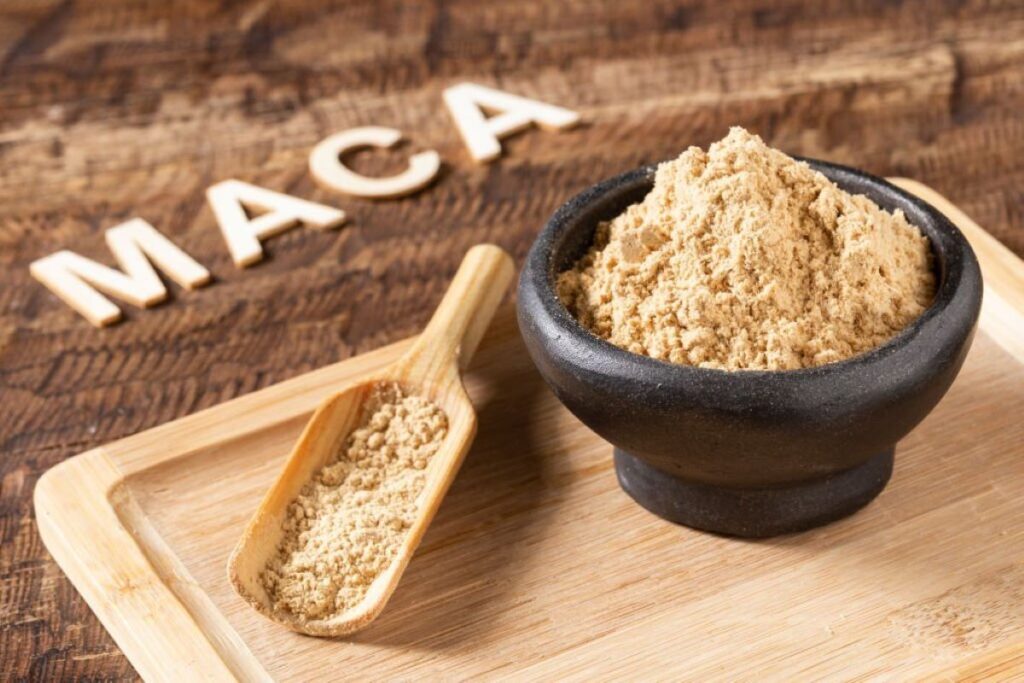I know how challenging it is to balance between supplements while you are on hormonal birth control. Natural supplements like maca root or ashwagandha are great for your body, but it’s not easy to be sure about their impact on birth control.
I get numerous queries about the confusion. And many of our readers often ask how maca root and birth control interact.
Maca root does not have any negative impact on hormonal birth control. However, maca root is known to enhance fertility and improve sexual functioning. So using it with birth control won’t bring any extra benefits. But adding maca and ashwagandha to your diet will be helpful before pregnancy.
There is more to know about this potent plant root and its impact on your health and reproductive system. Whether you are on birth control or trying to welcome a new family member, this blog has something for both!
Maca Root and Birth Control Balance
Till now, no study conclusively finds any adverse effect of maca root on hormonal contraceptives. However, there is no evidence to support any positive impact either.

FDA approved the first-ever OTC birth control pill – Opill.
Maca root is safe on hormones and the overall female reproductive system. Lab studies on rats found no significant effect of maca extract on any estrous cycle phase.
Thus, up to 3400 mg/day (total) of maca extract was found safe and beneficial for mood, libido, overall quality of life, muscular strength, and aerobic capacity.
Does Maca Root Increase Chances Of Pregnancy?
If you plan to get pregnant, adding maca along with ashwagandha extract to your diet will make things more favorable. Maca and ashwagandha are well known for their positive impact on hormone balancing, healthy thyroid functioning, sexual functioning, PMS, and menopause.
When those issues are under control, it will be easier and more comfortable for you to get pregnant. Ensure you talk to your gynecologist before adding any supplement before getting pregnant.

Can Maca Root Cause Irregular Periods?
Due to its adaptogenic effect, Maca root can affect the menstrual cycle and cause prolonged and
Heavy menstrual bleeding and a spike in testosterone levels.
Maca typically shows oestrogenic effects that may worsen the highly oestrogenic female reproductive process, such as irregular cycles, painful periods, and heavy flow.
When Should A Woman Take Maca?
There are three distinct periods in a woman’s life when incorporating maca root powder into a hormonally-supportive diet can be particularly advantageous. These periods include:
- During the transition to perimenopause and continuing through post-menopause, typically starting around age 35.
- Following the discontinuation of hormonal birth control pills.
- After giving birth and ceasing breastfeeding.
During these phases, maca root powder may aid your body in generating hormones, compensating for any potential decline in your endocrine system’s function due to
- Perimenopausal changes
- Hormonal suppression from birth control pills
- Sleep deprivation after childbirth
When Should You Not Use Maca?
It’s not safe to take maca in the following conditions.
- Allergic to iodine
- Hashimoto’s
- Any thyroid nodules or growths
How Does Maca Root Work?
While the exact mechanism behind maca’s action remains unclear, research suggests that secondary metabolites like glucosinolates, macaene, macamides, β-sitosterol, and campesterol in maca extracts play a significant role in its physiological effects.
These metabolites are unique chemical compounds contributing to the plant’s health-promoting properties. And consuming maca is considered safe, given its low toxicity levels.
How Long Does It Take For Maca To Balance Hormones?
Typically maca root extracts take 4 – 6 weeks to balance hormones like Estrogen (E2), Progesterone (PGS), Cortisol (CT), Adrenocorticotropic Hormone (ACTH), and Thyroid Hormones.
A model lab study on Ovariectomized rats on 250 mg maca per kg body weight shows a significant decrease in E2 and PRG within 4 weeks. The study also found a reduction in blood cholesterol and triglycerides.
Does Maca Block Estrogen?
Maca root does not directly block estrogen. However, it is known to have an adaptogenic effect on the endocrine system, which means it may help balance hormone levels in the body.
Maca root contains glucosinolates, which can influence hormone production and metabolism.

Which Herbs Interfere With Birth Control?
Certain herbs and supplements like St. John’s Wort, Black Cohosh, Chasteberry, and Wild Yam may interact with birth control, potentially reducing its effectiveness or causing other side effects.
St. John’s Wort
This herb, often used for its potential antidepressant and anti-anxiety properties, has been shown to interact with various medications, including hormonal contraceptives. It may decrease the effectiveness of birth control pills by increasing the rate at which the body metabolizes hormones.
Black Cohosh
Primarily used to alleviate menopausal symptoms, black cohosh may have estrogen-like effects on the body, potentially interfering with hormonal birth control.
Chasteberry (Vitex)
Commonly used to regulate menstrual cycles and ease PMS symptoms, chasteberry may affect hormone levels, leading to potential interactions with hormonal contraceptives.
Dong Quai
Often taken for menstrual irregularities and menopause symptoms, dong quai may also have estrogen-like effects, potentially interfering with hormonal birth control.
Saw Palmetto
Typically used for prostate health and urinary tract issues, saw palmetto may have hormone-modulating effects that could interact with hormonal contraceptives.
Wild Yam
Although it’s sometimes recommended for hormonal balance and menopausal symptoms, wild yam may interfere with the effectiveness of hormonal birth control due to its potential estrogen-like effects.
Conclusion
Maca root and birth control may not have any adverse interaction; however, you must be cautious about your menstrual cycle. The endocrine-simulating effect of this magic root can worsen your period.
Talk to your gynecologist before adding maca and ensure the best outcome of this incredible natural supplement.
Make sure to check our blogs for more information.

I am a health and wellness enthusiast working in a Pittsburgh-based wellness clinic. My primary role as a consultant is to tailor a balanced lifestyle for my patients, where positive steps and potent supplements play a synergistic role.

